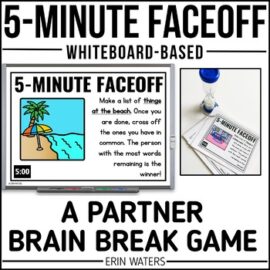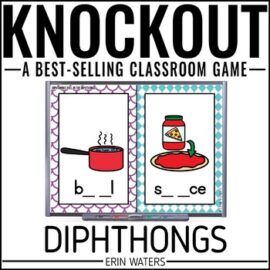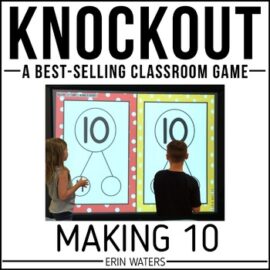If I had to pick a teaching soapbox, homework would be mine. It's bad for kids, yet it still exists in way too many schools.
And look–I get it.
Change is an inevitable constant in life–always has been, always will be. It's funny, then, that change still has the power to make us feel extremely uncomfortable. That is why convincing others to change their mindsets or actions can often feel impossible. This feels hard even when you know the facts and figures behind your argument. Like homework. It's bad. Really bad. Still, it often requires a Herculean effort to convince parents and principals otherwise.

How I Got Here
Here's the thing. For the longest time, I always thought that sending work home with my students was helping them. I thought homework would reinforce topics we've learned in the classroom. HOWEVER; recent studies have shown that the correlation between homework and achievement in the elementary grades is nonexistent. I know, right?
The Facts
In fact, studies have shown that too much homework in the elementary grades actually has a negative impact on students. Here are some compelling figures. You can use them when convincing your principal or parents that traditional homework is no good. In addition, you can use these facts to support an alternative. I have compiled the arguments into a PowerPoint presentation you can use to show your principal or your students' parents during Meet the Teacher. Here are some samples:
How to Convince Your Principal + Parents That Homework Actually Sucks
1. The NEA and NPTA recommend 10 minutes of homework per grade level per night. But the average K-5 student receives 3 times the recommended amount.


2. Students are spending most of their time either sleeping or at school. With the average K-5 student receiving 40 minutes of homework per day, this leaves little personal time for students.

3. As if 5x too much homework isn't bad enough, studies show there is a severe lack of time available to spend as a family. Due to busy schedules with working parents and school-aged children, the average family spends 2.5 hours per day together. About one-third of this time is spent on–you guessed it–homework.

4. Homework encroaches on what little family time is available. In addition, this schedule also leaves very little room for play. Kids need to play, but spend a lot of this time hunched over a table with a pencil and frustration.
5. Traditional homework is restrictive in choice. It often requires materials (time, school supplies, and education) that students' families simply don't have. Even worse, teachers often punish students for not completing homework–which is often not in the student's control.
The Homework Solution
For all of these reasons, I created and implemented UnHomework in my classroom years ago. I've never looked back. UnHomework is an alternative to traditional homework. UnHomework offers students 5 choices per week and 1 raffle ticket to submit every time they complete a choice. Winners are chosen weekly and can choose from the prize menu. If this sounds like something you'd like for your classroom, you can learn more here.
The bottom line is, no matter what you choose to do or not do, traditional homework is unhealthy for our kids.
The facts don't lie. Do you need support in speaking to your principal or classroom parents? Tell them how you are changing the homework game this year. Please click the image below to download the free presentation slides I've created for you! If you have friends that also want to ditch traditional homework, I encourage you to use the share buttons below to get the word out via Instagram or Facebook!
This site contains affiliate links. This simply means if you buy something using our link, we will receive a very small portion of the sales.
The price of the item is the same whether it is an affiliate link or not. It is our promise to you that we only recommend products or services we believe will add value to our readers.
By using the affiliate links, you are helping support our Website, and we genuinely appreciate your support.









 Arm you with high-quality tools: Sleep peacefully at night knowing you’re doing what’s best for your students.
Arm you with high-quality tools: Sleep peacefully at night knowing you’re doing what’s best for your students. Save your energy: Provide resources that cost you little energy (that stuff is precious)---but have high impact on your students.
Save your energy: Provide resources that cost you little energy (that stuff is precious)---but have high impact on your students. Light your spark: Putting fun back into your classroom after the hardest teaching years can be just what you and your students need.
Light your spark: Putting fun back into your classroom after the hardest teaching years can be just what you and your students need.
Leave a Comment